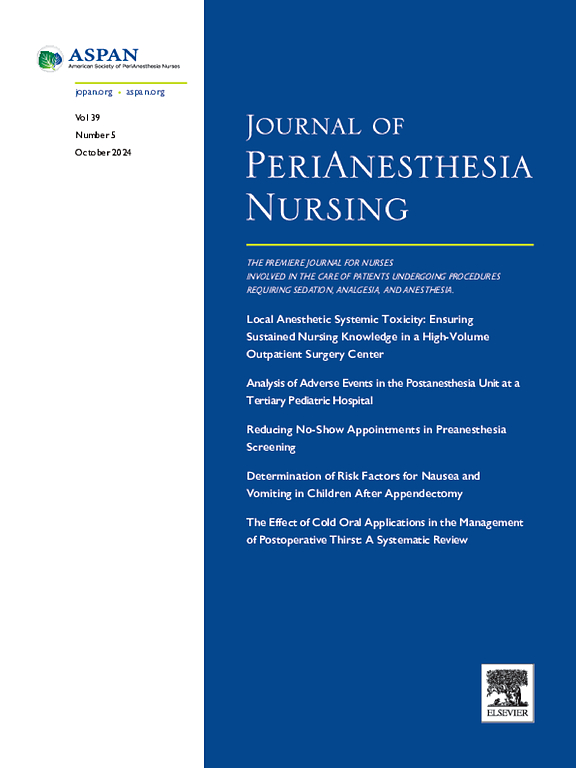Green Tea Intake: A Protective Factor Against Postsurgical Hypothyroidism and Hypoparathyroidism
IF 1.6
4区 医学
Q2 NURSING
引用次数: 0
Abstract
Purpose
Tea and coffee are the most commonly consumed types of drinks, identified with multiple health benefits. However, the association between tea and coffee intake and postsurgical hypothyroidism and hypoparathyroidism (PHypoTP) is still unclear. Therefore, the objective of this study is to explore the effect of tea and coffee intake on the risk of PHypoTP.
Design
Two-sample Mendelian randomization (MR).
Methods
The primary approach for MR estimates was the inverse-variance-weighted method. MR-Egger, MR Pleiotropy RESidual Sum and Outlier (PRESSO), weighted median, simple mode, and weighted mode were used to detect pleiotropy and heterogeneity.
Findings
We found that green tea intake was causally associated with the decreased risk of PHypoTP (β = −0.019; 95% confidence interval: −0.038 to −0.001; P = .029). However, there was no significant association between coffee intake and the risk of PHypoTP. No heterogeneity or pleiotropy in these results was detected.
Conclusions
Our findings provide the genetic evidence supporting that green tea intake was a protective factor against PHypoTP. Accordingly, we may suggest that patients after thyroidectomy to add green tea into their habitual diet during nursing education.
绿茶摄入量:手术后甲状腺功能减退症和甲状旁腺功能减退症的保护因素
目的:茶和咖啡是最常饮用的饮品,具有多种健康益处。然而,茶和咖啡的摄入量与手术后甲状腺功能减退症和甲状旁腺功能减退症(PHypoTP)之间的关系仍不清楚。因此,本研究旨在探讨茶和咖啡摄入量对PHypoTP风险的影响:设计:双样本孟德尔随机法(MR):MR估计的主要方法是逆方差加权法。MR-Egger、MR Pleiotropy RESidual Sum and Outlier (PRESSO)、加权中位数、简单模式和加权模式用于检测多向性和异质性:我们发现,绿茶摄入量与 PHypoTP 风险的降低存在因果关系(β = -0.019;95% 置信区间:-0.038 至 -0.001;P = .029)。然而,咖啡摄入量与 PHypoTP 风险之间没有明显关联。在这些结果中没有发现异质性或多重效应:我们的研究结果为绿茶摄入量是 PHypoTP 的保护因素提供了遗传学证据。因此,我们建议甲状腺切除术后的患者在护理教育中将绿茶添加到习惯饮食中。
本文章由计算机程序翻译,如有差异,请以英文原文为准。
求助全文
约1分钟内获得全文
求助全文
来源期刊

Journal of Perianesthesia Nursing
NURSING-
CiteScore
2.20
自引率
17.60%
发文量
279
审稿时长
90 days
期刊介绍:
The Journal of PeriAnesthesia Nursing provides original, peer-reviewed research for a primary audience that includes nurses in perianesthesia settings, including ambulatory surgery, preadmission testing, postanesthesia care (Phases I and II), extended observation, and pain management. The Journal provides a forum for sharing professional knowledge and experience relating to management, ethics, legislation, research, and other aspects of perianesthesia nursing.
 求助内容:
求助内容: 应助结果提醒方式:
应助结果提醒方式:


